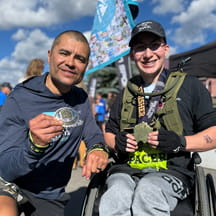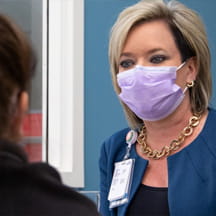As a society, we document and learn from epic wars, diseases and events. While the coronavirus pandemic will be viewed as one of the most significant events of the 21st century, COVID-19 will recede, therapies will emerge, and we hope and expect vaccines will protect us from future outbreaks. Lessons will emerge—in our responses individually and collectively. As children's hospitals, what will we learn?
The strategic, operational and financial effects for children's hospitals and all providers are significant, and we do not yet understand the repercussions. We know children have been disproportionately spared infection of COVID-19 and expect the effects on their health will appear differently.
For children, the pandemic is being called the "9/11 of Generation Z." It's far more reaching, affecting their lives with closed childcare centers and schools, stay-at-home orders, and the stress of the economic impact on families. In addition to "catching up" on well-child visits, deferred admissions, procedures and routine care, awareness and care of children's behavioral health will take on a new urgency. How we integrate and deliver physical and mental health care has never been more important.
Children's hospitals' staff health and well-being, telehealth, and the optimization of facilities, equipment and supplies have been accelerated by surge planning and post-surge realities. Returning to a pre-pandemic state will not be an option. How we operationalize the strategies compelled by this crisis—stabilizing the workforce, ensuring quality, and serving unmet and additional needs—while creating new and sustainable models of delivery, must be a priority.
Our work as a community—to share and learn together—has taken on new meaning. Local conditions shaped children's hospitals' responses, but the effects have been universal. Collaboration has accelerated, and at Children's Hospital Association, we have seen this firsthand. We must transform methods of collaboration to:
- Increase the pace of improvement and adaptation to change.
- Leverage comparative data to rapidly inform and change clinical practice.
- Elevate the conversation around children's health, well-being and the role of children's hospitals at the state and federal level.
History teaches us with each crisis comes growth. We mourn the loss of life and the way we were. We gain knowledge and grit fueling creativity and progress. These are lessons we teach children, and sometimes we need to remind ourselves as well. So, forward we go, never forgetting the past, but embracing our future—who are indeed our children.



